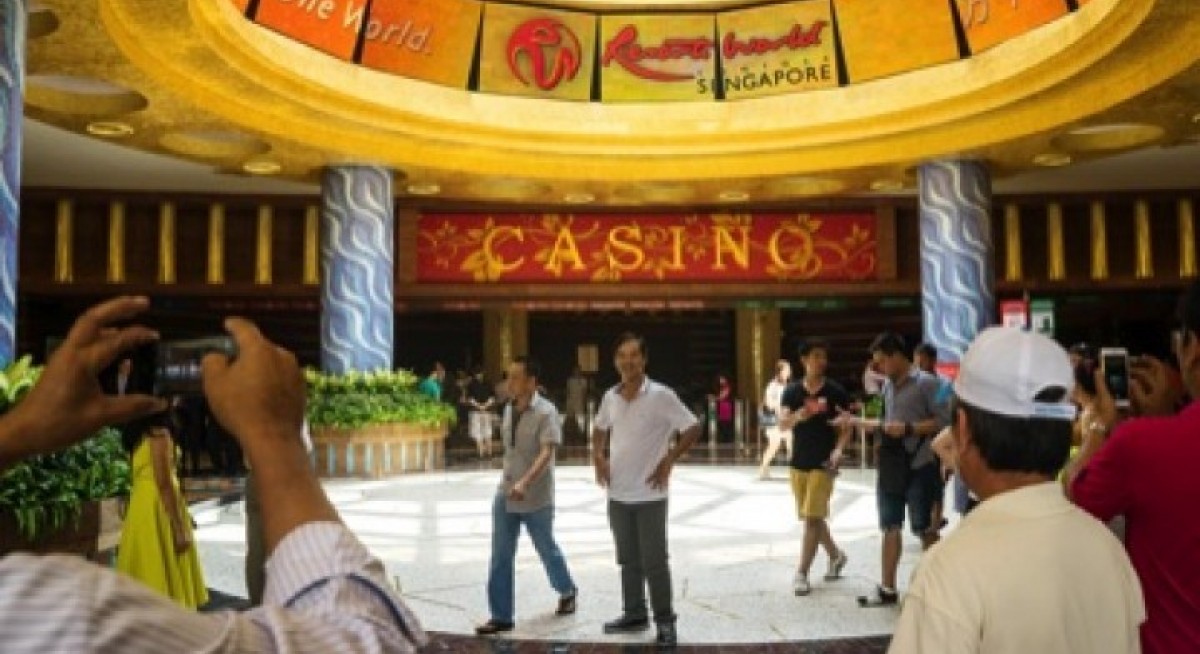The board has recommended a dividend of 2 cents per ordinary share for the 1HFY2025 period.
Analysts have kept quite a positive stance on Genting Singapore despite the lacklustre results as they look forward to the group’s Resorts World Sentosa (RWS) 2.0 transformation.
UOB Kay Hian’s Jack Goh notes that the group’s weaker 2QFY2025 results reflect softening RWS footfall, impacted by several major renovations. Profitability margins also contracted on higher staff costs following the launch of new attractions under the RWS 2.0 blueprints. He has kept his “buy” call on Genting Singapore while lowering the target price to 89 cents from 90 cents.
“While 2HFY2025 margins may remain under pressure before these new facilities achieve better operating efficiencies, we remain positive on Genting Singapore’s mid-long-term outlook, bargain valuations and lush dividend yield (5.3%),” says Goh, who is also upbeat on Singapore’s tourism statistics to sustain the group’s growth momentum.
See also: Stress test: Analysts weigh in on Tan Su Shan’s first year as DBS group CEO
Meanwhile, Goh notes a potential uplift from Thailand’s withdrawal of the casino legalisation plan in July. “We are of the view that this withdrawal/delay of Thailand’s casino approval is modestly positive for Genting Singapore, given lesser competition,” says Goh, expecting better cashflow for dividend payouts following the backtracking of Thailand’s casino plan, given the group had previously expressed interest to bid for the costly Thailand casino license (estimated to be US$3 billion ($3.86 billion)).
The way Morningstar Research analyst Jennifer Song sees it, the recent results came in slightly below expectations, owing to the ongoing renovation disruptions from its RWS 2.0 project, and the temporary closure of SEA Aquarium in May and June, with operating deleverage driving costs higher.
Song expects growth to pick up in the second half of 2025, underpinned by the launch and ramp-up of new projects and attractions, including the opening of the Singapore Oceanarium in July, the 170-room all-suite Luxury hotel The Laurus in October, and expanded retail and dining options.
See also: ‘Path to breakeven becoming visible’ for MetaOptics
Taking into account the higher costs associated with its renovation disruption, and macroeconomic risks amid the US tariff hike, Song has decreased FY2025 and FY2026 forecasts by 1%–3% and adjusted Ebitda by 6%–7%, reflecting a 1–2 percentage point reduction in adjusted ebitda margin.
On that note, she has kept a four out of five-star rating on the counter, which translates to the research house believing “appreciation beyond a fair risk-adjusted return is likely”. The fair value estimate has also been lowered slightly to 95 cents from 96 cents.
“Although Genting Singapore has been losing gaming revenue market share to peer Marina Bay Sands, we anticipate the phased launch of its RWS 2.0 attractions, beginning in the second half of 2025, to accelerate revenue growth, expand margins and strengthen its market position,” says Song.
Similarly, CGS International (CGSI) has kept its “add” call but lowered the target price to 83.5 cents from $1.05.
Analyst Tay Wee Kuang notes that Genting Singapore saw its gaming revenue decline 8.1% q-o-q in 2QFY2025, bucking the trend of 24.6% q-o-q growth in gaming revenue observed by its peer Marina Bay Sands.
“We believe Genting Singapore lost market share, especially for its mass gaming segment, given ongoing renovation works across RWS, which were likely to have turned visitors away from the property,” says Tay.
Staff costs rose by 17.4% y-o-y to $292.7 million in 1HFY2025 as a result of higher headcount to support the operations of its new attractions in Minon Land, the Singapore Oceanarium, as well as its new retail space, the Weave.
For more stories about where money flows, click here for Capital Section
“During its analyst briefing held on the evening of Aug 7, management also shared that it is updating the organisation structure within Genting Singapore, which could see the addition of more experienced personnel onto the management team, which we believe could result in higher staff costs going forward. Nevertheless, management shared that its total headcount should remain stable ahead,” shares Tay, who expects Genting Singapore’s profitability to mend in FY2026 following full contribution from attractions under RWS 1.5.
On the other hand, DBS Group Research is less bullish than research peers as it keeps a “hold” call on Genting Singapore with an unchanged target price of 80 cents.
Analyst Chee Zheng Feng sees Genting Singapore as one of the most profitable and diversified gaming operators in a duopoly market. It enjoys a strategic location in Singapore, a thriving tourism hub with strong domestic demand. The duopoly market structure supports relatively low competitive intensity. RWS further benefits from business diversification (greater non-gaming revenue share) and a broad geographical reach of its visitor base — factors that underpin its typically higher ebitda margins.
Contrary to DBS’s earlier expectations of a soft gaming performance due to regional macroeconomic challenges, the company delivered stronger-than-expected results, with VIP rolling volume estimated to have grown 15% y-o-y and 5% q-o-q. “Despite the resilient gaming performance, adjusted ebitda missed expectations, weighed down by a sharp increase in labour costs ahead of the Oceanarium launch,” says Chee, who expects staff costs to remain elevated to support the expanded Oceanarium operations.
Given the continued soft hospitality landscape, Chee has also lowered the room occupancy assumption from 80% to 75%.




